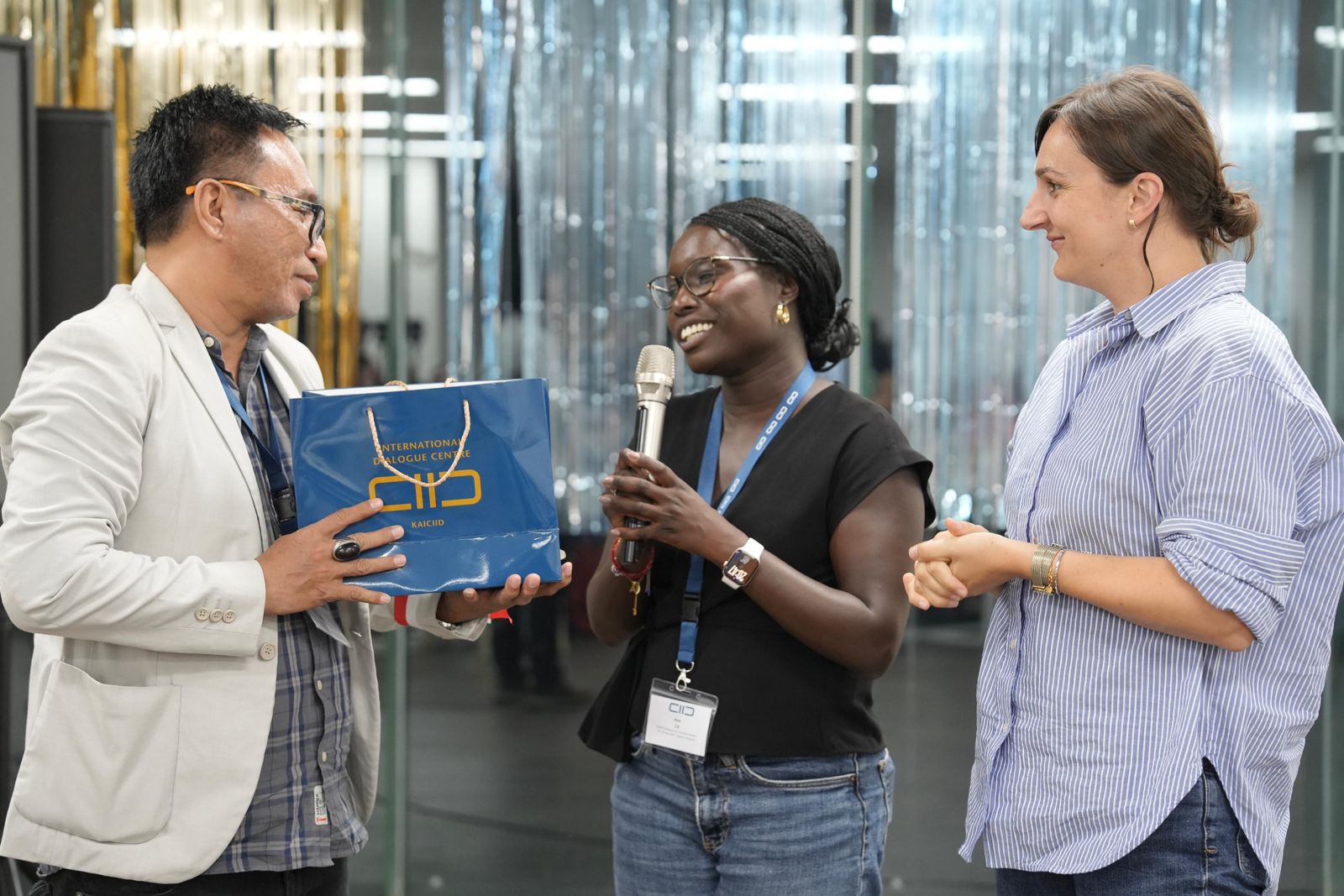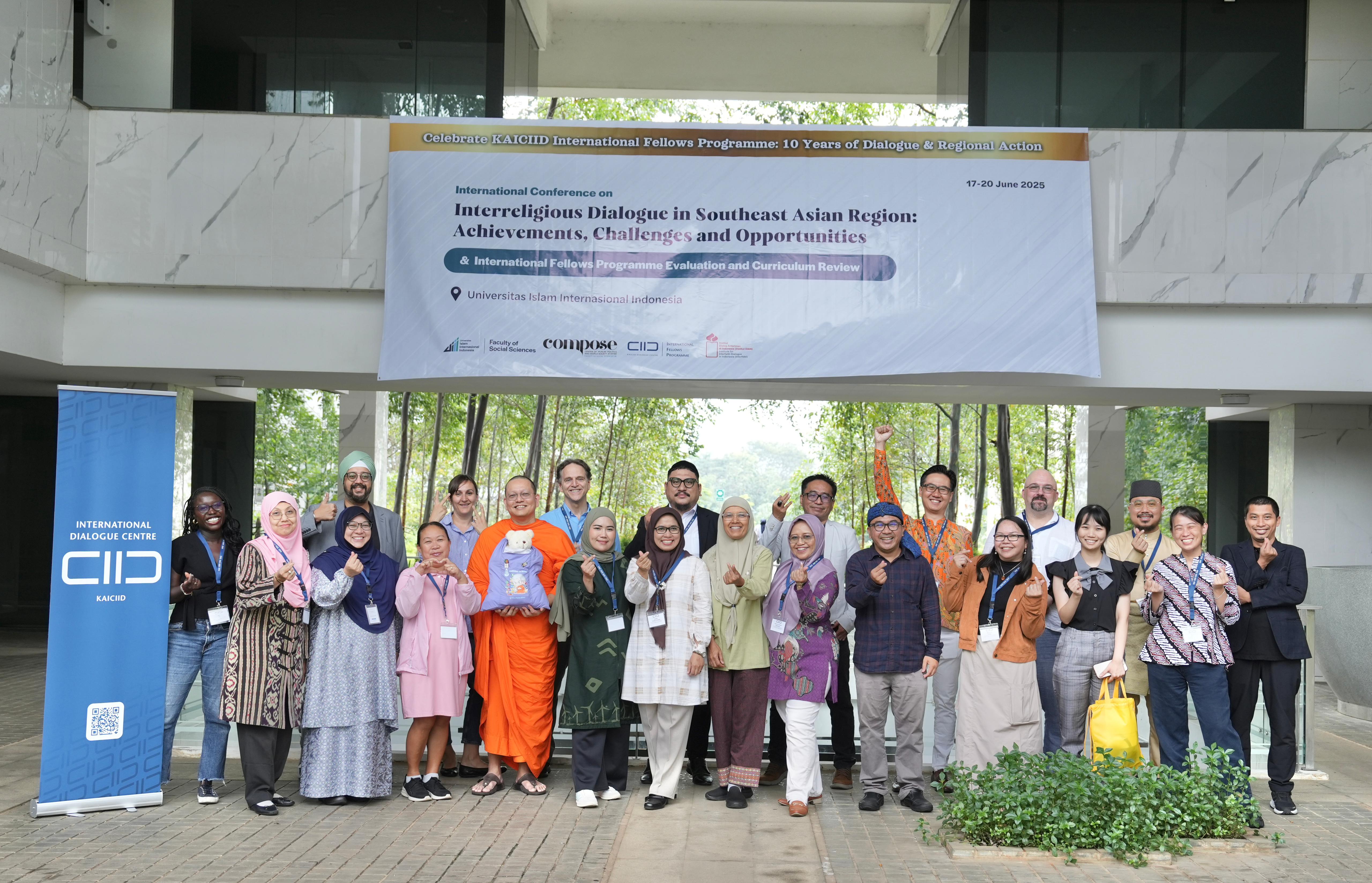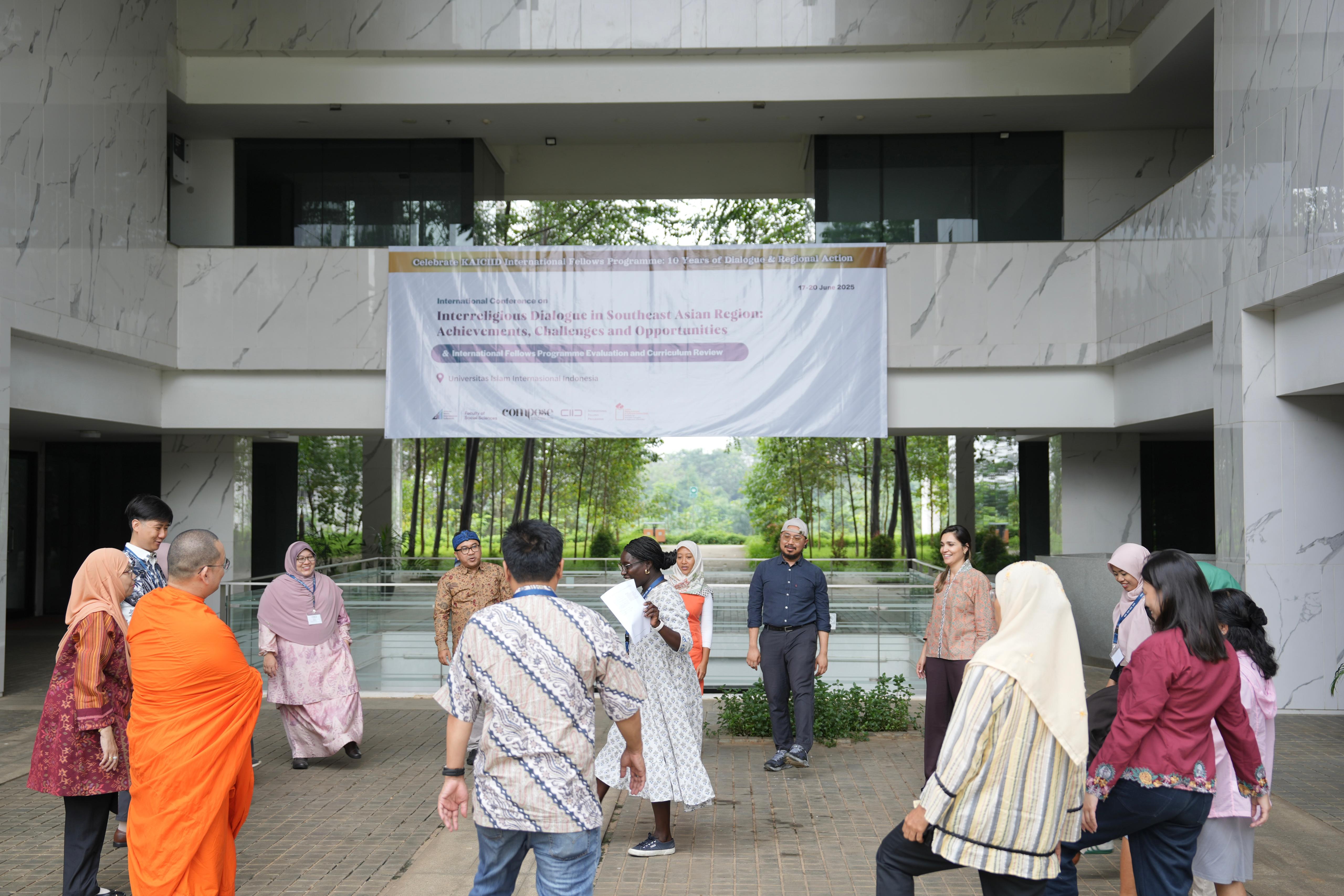June 20, 2025
Contributor: Supriyono | Editor: Dadi Darmadi | Photo: Ghada Fikri

As part of its ongoing effort to contextualize interreligious dialogue, KAICIID (The King Abdullah bin Abdulaziz International Centre for Interreligious and Intercultural Dialogue) convened a regional consultation at Universitas Islam Internasional Indonesia (UIII) in Depok, Indonesia. The session focused on reviewing and adapting the program’s curriculum to better align with the needs and realities of Southeast Asia.
The consultation marks the third in a global series that began in Brasília, Brazil and continued in Lisbon, Portugal. These review sessions are part of KAICIID’s 10-year anniversary initiative to gather structured input from its alumni network which consist of more than 500 fellows worldwide. Prior to the consultation, they conducted webinar series and an offline international conference held jointly with UIII’s Center for Muslim Politics and World Society (COMPOSE) and Institut Dian Yogyakarta.
“We’re looking at where we’ve been, where we are now, and where we want to go. We do this because we want to enhance and contextualize our training modules for different regions including Southeast Asia,” said Ana Có, Programmes Officer for the KAICIID Fellows Program.
The KAICIID Fellows Program is a year-long capacity-building initiative that equips religious and community leaders with practical tools for dialogue, peacebuilding, and project management. It emphasizes hands-on skills such as dialogue facilitation, intercultural communication, and monitoring and evaluation—all critical for fostering understanding in diverse societies.

In Southeast Asia, where religious plurality is deeply woven into daily life, the need for context-specific training is particularly important. The consultation at UIII brought together fellows from across the Southeast Asia region to assess whether existing content and materials reflect local dynamics, challenges, and opportunities.
The choice of UIII as the host for this consultation was well-suited, Ana said. With a growing reputation as a hub for international and interreligious scholarship, the university’s diverse academic community and commitment to inclusivity made it a right partner. “UIII’s academic vision reflects many of the values we uphold in our program—diversity, dialogue, and collaboration,” she conveyed.
The outcome of the consultation will contribute to the development of an updated training manual and other learning materials tailored to the Southeast Asian context. These resources are expected to be rolled out in the coming year, offering future fellows more accessible, relevant, and regionally grounded tools for their work.

“By listening to our alumni, we gain insight into what is needed, not just globally, but locally,” Ana said. “This process helps ensure that our training is not only comprehensive but also flexible enough to meet the diverse needs of the people we serve.”
Reflecting on today’s situation, Ana acknowledged the broader challenges facing the field of interreligious dialogue, including rising tensions, political polarization, and the misuse of religion in public discourse. “In some ways, the work feels harder than ever,” she reflected. “But when we come together in spaces like this, when we see the continued dedication of our alumni, it reminds us that the work is necessary and that meaningful change begins in consistent efforts.”
Through KAICIID’s consultation at UIII concluded, it highlighted a shared hope for the future of interreligious dialogue—one that is more inclusive, regionally grounded, and responsive to evolving social dynamics. The insights gathered from Southeast Asian fellows offer a pathway toward refining training approaches that better reflect local realities while maintaining a global vision.
Universitas Islam Internasional Indonesia